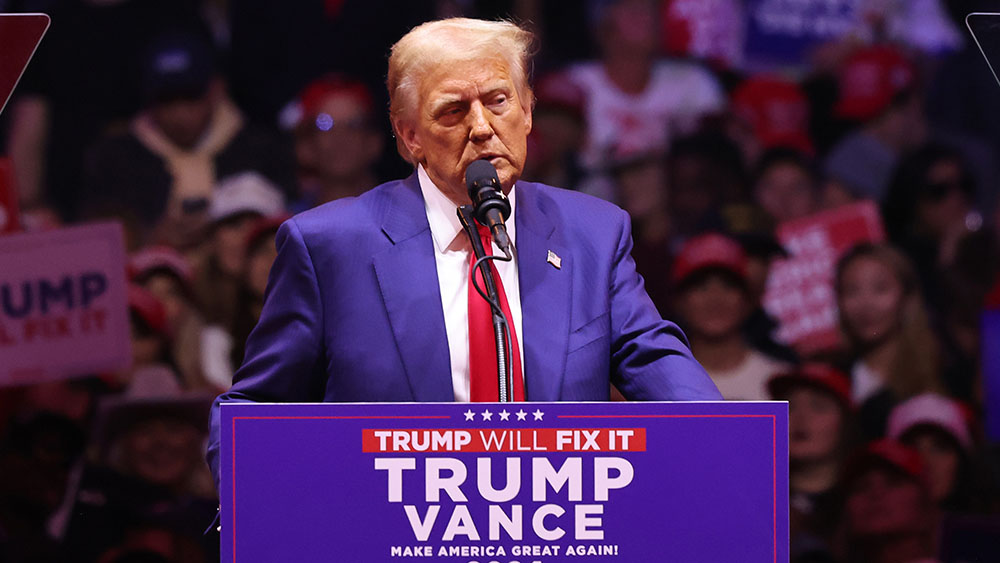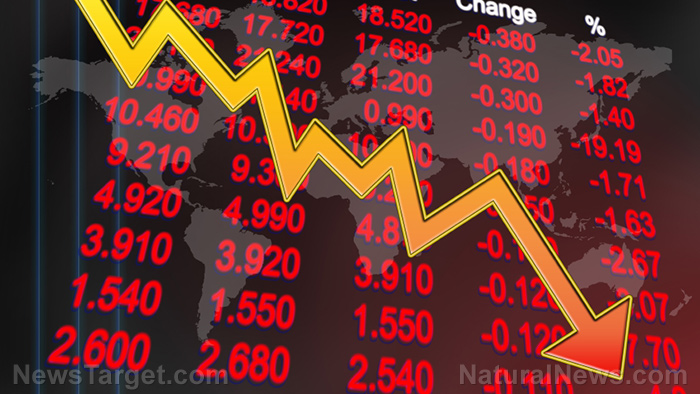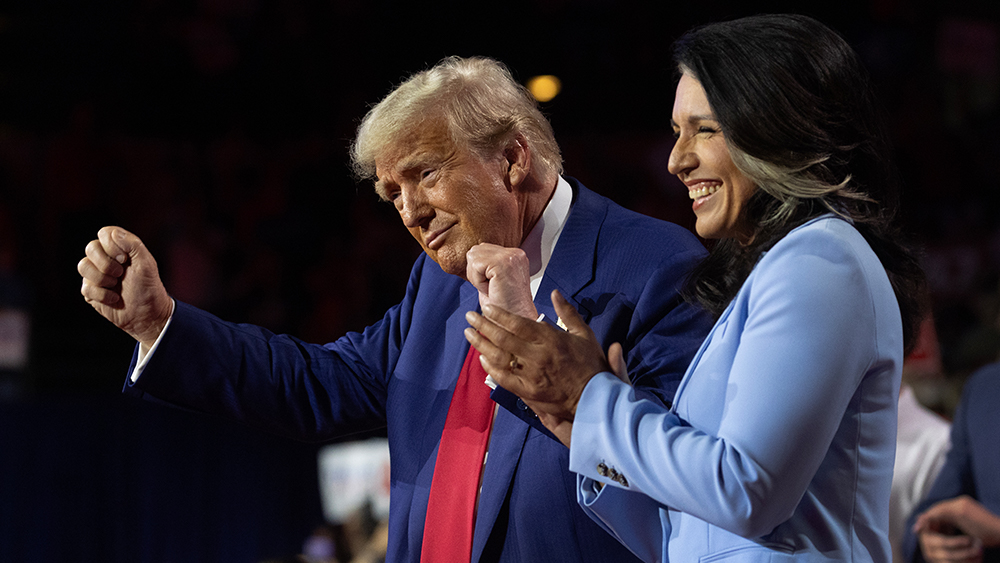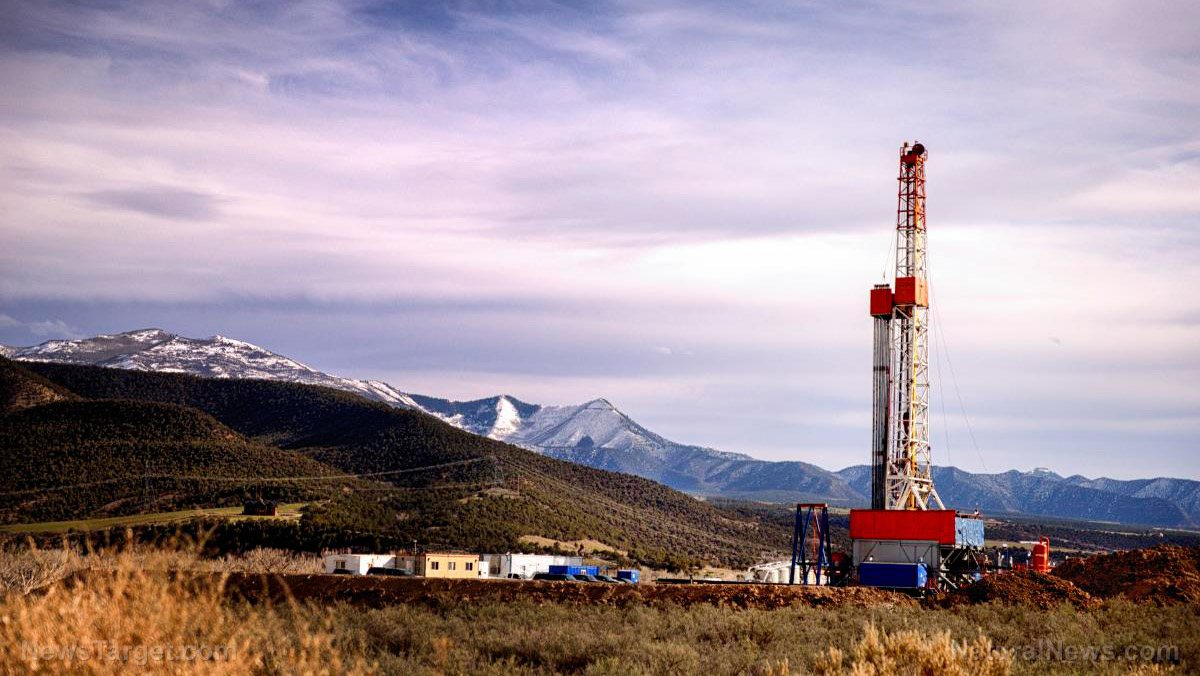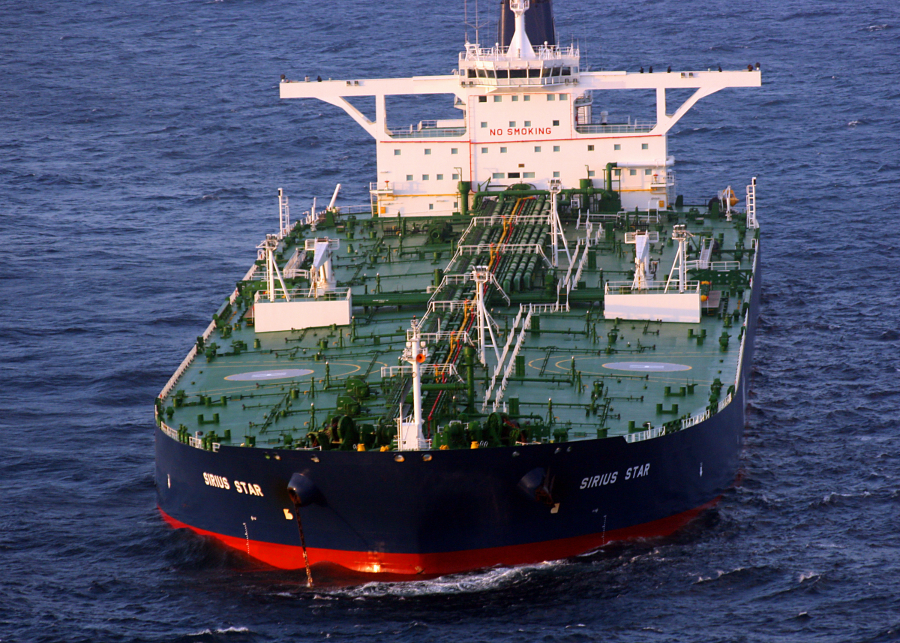Trump’s energy sanctions strike again: Venezuela’s oil exports plummet 11.5%—here’s why it matters
04/03/2025 / By Willow Tohi

- U.S. sanctions, including a 25% tariff on nations buying Venezuelan crude and revoked operating licenses for foreign firms, caused a 11.5% drop in Venezuela’s March oil exports, further straining its economy.
- The sanctions aim to pressure Nicolás Maduro’s regime, framed as a response to Venezuela’s hostility and migration issues. Key measures include forcing Chevron and other firms to exit by May 27.
- China remains Venezuela’s top oil buyer, but 35 laden vessels stalled near ports as shippers await clarity on U.S. enforcement. Exports to India and the U.S. also declined sharply.
- Chevron’s exit disrupts U.S. Gulf Coast refineries reliant on Venezuela’s heavy oil, potentially raising domestic fuel prices amid tighter global supplies.
- The sanctions test Venezuela’s resilience (e.g., workarounds with China) while tying energy policy to U.S. immigration and security goals. The long-term impact—whether regime change or deeper China dependence—remains uncertain.
For decades, Venezuela sat atop the world’s largest proven oil reserves—a staggering 303 billion barrels—yet socialist mismanagement, corruption and U.S. sanctions have turned its energy sector into a shadow of its former self. Now, under President Donald Trump’s renewed sanctions regime, Venezuela’s oil exports have taken another major hit, dropping 11.5% in March as Washington tightens the screws on Nicolás Maduro’s regime.
The latest crackdown includes a 25% “secondary tariff” on any nation buying Venezuelan crude, the revocation of key operating licenses for foreign firms, and a forced wind-down of Chevron’s remaining operations in the country. The result? Tankers idling near Venezuelan ports, buyers in China and India hesitating, and Maduro’s cash cow—oil revenue—drying up further.
The sanctions hammer drops
On March 24, President Trump signed an executive order imposing a 25% tariff on all goods imported into the U.S. from countries that purchase Venezuelan oil, whether directly or through third parties. “Venezuela has been very hostile to the United States and the Freedoms which we espouse,” Trump declared on Truth Social, framing the move as part of his broader economic and immigration crackdown.
The Treasury Department also revoked licenses allowing foreign firms—including Chevron, Eni, Repsol and Maurel & Prom—to operate in Venezuela, setting a May 27 deadline for them to cease operations. The immediate effect was palpable:
- 42 tankers left Venezuela in March, carrying just 804,677 barrels per day (bpd) of crude and fuel—an 11.5% drop from February.
- China remained the top buyer (483,700 bpd), followed by the U.S. (210,700 bpd), India (60,160 bpd) and Cuba (50,130 bpd).
- 35 laden vessels sat idle near Venezuelan ports, as buyers and shippers waited to see how strictly the U.S. would enforce the new tariffs.
A repeat of 2020?
This isn’t the first time U.S. sanctions have crippled Venezuela’s oil sector. In 2020, Trump’s “maximum pressure” campaign slashed exports to historic lows, starving Maduro’s regime of revenue. Now, history may be repeating itself.
“If sustained, the U.S. measures are expected to hit Venezuela’s main source of revenue in the coming months,” energy analysts warn. But unlike 2020, Venezuela has since perfected workarounds—like trans-shipments at sea and opaque deals with China—to keep some oil flowing.
Chevron’s exit and the heavy crude conundrum
One of the biggest blows was the suspension of Chevron’s license, which had allowed it to produce and export Venezuelan crude to U.S. Gulf Coast refineries—key buyers of Venezuela’s heavy-grade oil.
The Biden administration had granted Chevron a waiver in 2022, hoping to stabilize global oil markets post-Russia’s Ukraine invasion. But Trump reversed course, arguing that Maduro had failed to uphold electoral reforms and curb illegal migration.
The fallout? U.S. refiners—already struggling with reduced Canadian and Mexican crude flows—now face tighter supplies, potentially driving up domestic fuel prices.
Maduro’s defiance and the global chess game
Venezuela’s Vice President Delcy Rodríguez dismissed the export decline as “wrong,” claiming a 8.78% increase in March shipments—though she provided no evidence. Meanwhile, Maduro’s regime defiantly called the sanctions “arbitrary, illegal and desperate.”
But the numbers don’t lie. With 80+ vessels stalled near Venezuelan ports and European firms loading what may be their last cargoes before the May 27 deadline, Maduro’s options are dwindling.
Why this matters for America
- Energy security – Cutting off Venezuelan crude risks tightening heavy oil supplies, raising costs for U.S. refiners.
- Immigration leverage – Trump is using energy sanctions to pressure Maduro on border security, tying oil policy to national sovereignty.
- China’s shadow trade – Beijing remains Venezuela’s top buyer, exploiting U.S. sanctions to secure cheap crude. Will secondary tariffs force China to back off?
The bottom line
Trump’s sanctions are biting—hard. But whether they force Maduro to the negotiating table or simply push Venezuela deeper into China’s orbit remains to be seen. One thing is certain: In the high-stakes game of global energy dominance, America isn’t backing down.
Stay tuned as we track Venezuela’s next moves—and how Washington responds.
Sources include:
Submit a correction >>
Tagged Under:
big government, border security, economy, Globalism, Maduro, national security, supply chain, tariffs, trade wars, Trump, Venezuela
This article may contain statements that reflect the opinion of the author
RECENT NEWS & ARTICLES
COPYRIGHT © 2017 WHITE HOUSE NEWS

